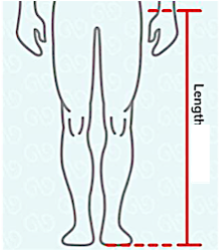|
Retirement/Lifestyle Village Checklist From Aged Advisor www.agedadvisor.com Use this as a reference. You may wish to either tick if it applies, add ‘yes’ or ‘no’ or give a personal rating from 1-5 to help compare your options. Questions Financial
Location
Social / General
Care
On Exit
Glossary of Terms Retirement Commission This is an organisation focused on helping retirees with the financial and legal obligations of entering into a retirement village. COP – Code of Practice This refers to a legal document that sits under the Retirement Villages Act 2003 called the ‘Retirement Villages Code of Practice 2008). DMF - Deferred Management Fee This is a cost paid after a resident leaves or terminates their unit in a village. Disclosure Statement This document must be provided to an intending resident and normally accompanies an ORA. LTO – License to Occupy While this license gives you legal access to live in the unit or home you will move into. It doesn’t give you ownership of this space. ORA – Occupation Right Agreement This refers to the contract you sign with a village operator before you move in. RORV – Register of Retirement Villages The Registrar of Retirement Villages main function is to maintain the Retirement Villages Register. RVA – Retirement Villages Association A national membership body representing residents living in retirement villages RVR or RVResidents Retirement Village Residents Association of NZ A national membership body representing living in retirement villages. To print a list of the questions go to Information/Infomation and Handy Hints
 Having Trouble Sleeping as you Age Many of us experience changes in our sleeping as we age. We may find it hard getting to and staying asleep, or waking early unrefreshed, making us feel sleepy and sluggish during the day. Research suggests most of the sleep problems among the elderly are because of physical and psychological health problems and the medications used to treat them. Lack of sleep contributes to falls, car accidents, sensitivity to pain and a poor quality of life. The amount of sleep required by each person varies from 7-9 hours. It’s not the time sleeping that matters, it’s how you feel when you wake that’s important. There are a number of stages to sleep, dreamless periods of light sleep and deep active dreaming sleep (REM sleep). This cycle is repeated several times during the night and although total sleep time tends to remain constant, as we age we spend more time in the lighter stages of sleep than in deep sleep, which is more refreshing. This contributes to wakefulness during the night. Generally as we age we go to bed earlier and wake earlier. Here are a few tips to improve your sleep 1) Go to bed and get up about the same time every day. 2) Ensure you have a comfortable bed and bedding. 3) Have a bed time ritual that’s relaxing eg reading, deep breathing, listening to music, having a hot bath or shower. 4) Have a cool, dark and quiet bedroom to sleep in. 5) If your partner snores wear earplugs. 6) Keep your bedroom for sleep and sex only (no screens). 7) Stop looking at screens (TV and computers) about an hour before going to bed (the light tricks your mind into believing it’s day time). 8) Eat dinner at least three hours before bed. If you need a light snack avoid sweet snacks and those containing caffeine, instead have crackers and cheese or milk. 9) Don’t drink after dinner and go to the loo before bed so you don’t need to go through the night 10) Stop your caffeine intake at lunch time (coffee, fizzy drinks and chocolate). 11) Reduce your alcohol intake and stop at dinner time. If you’re having a great deal of trouble with sleeping stop drinking alcohol. 12) Get some vigorous exercise during the day, early afternoon is best and not in the evening, as this will keep you awake. 13) Vitamin D helps with sleep. Ensure you get enough from sunlight, your diet or supplements. 14) If you have a bad night’s sleep don’t worry, just try and go to bed at your usual time the next night. This will help keep your circadian rhythm on track. 15) If you are still awake after 20 minutes get up and do something quiet like reading. Keep light to a minimum and return to bed when you feel sleepy. 16) If you need a nap during the day, do so early in the afternoon and for about 20 minutes. 17) Reduce the stress in your life and don’t do anything that upsets you before bed. 18) Take any medication as and when prescribed. 19) If you have a health problem that interferes with your sleep eg Arthritic pain, reflux or a breathing problem, discuss this with your Doctor. Still not sleeping If after trying these tips for some weeks you’re still not sleeping well talk to your Doctor as you may:
Sleeping is important for our overall functioning, so take the time to think about your sleeping habits. Happy sleeping from the team at Therapy Professionals Ltd.
|
AuthorShonagh O'Hagan Archives
July 2024
|




 RSS Feed
RSS Feed